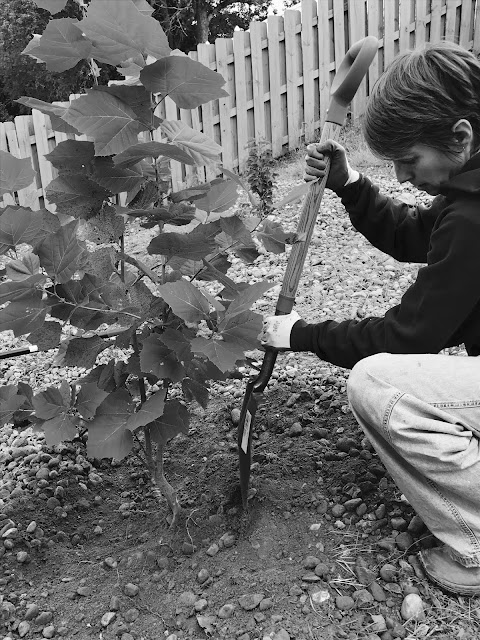A few months
ago, I did some digital housekeeping and created a better filing and numbering
system for my submissions and rejections. In the process, I determined my
numbering was off, so I have now corrected that and feel confident that my
system will help me track my rejections and publications moving forward.
Now that that’s
out of the way, let’s get down to business. On November 14, I received the
email announcing that I did not receive one of the Sustainable Arts Foundation’s
grants for artists who are raising children. This makes rejection 19.
I haven’t
submitted much this year. It’s been a quiet year of grieving and regrouping. I
have been focused on learning how to garden and teach yoga. I am fine tuning
my understanding of the rhythms of life. There is value in honoring and adhering to
the particular seasons of life. It’s a relief to remember that I cannot write
without breaks to catch my breath and live into the next season of writing. This
insight helps me relax and take each moment as it comes.
I read the
jurors’ comments to a coworker who I had encouraged to also submit an
application. I felt tightness in my throat as I read the words.
“Generally speaking, I think blog posts don’t make for the strongest
writing samples…it’s just really hard for most of them, with their more casual,
sometimes off-hand style, to compete against really polished samples prepared
for print or more formal publication. I hope this is helpful, and I wish you
the very best with your work.”
It was helpful
feedback. I will avoid including blog posts as part of my portfolio in future
grant applications, but the reality is that’s where I am right now. I am
primarily writing blog posts. So now what? But also, the blog posts I included
were not the bulk of my submission.
The second juror
addressed the short story, which made up half of the 15-page portfolio. It was
the first short story I’d written as an adult and focused on a woman and her
aging grandfather. It took some courage to finish it and to submit it for consideration. The juror asked, “Other than this being potentially the last
visit, what makes this visit stand out from all the others? Why is this the one to record?” She wrote that
the shift in my story “threw her,” wished she’d “had a clue earlier of what was
coming.” Then finished with “I enjoyed reading this…”
Now I was
defensive. These comments felt all over
the place and didn’t give me much to go on to improve my storytelling. Also,
when a reader is “thrown” that’s generally not a good thing, so don’t soften it
by then telling me that you enjoyed reading it. See? I was defensive.
I have learned
how to take and offer constructive feedback from writing retreats and workshops
I’ve attended. In those spaces, I didn’t always hear glowing comments, and I
grew from having heard what needed to be said. I was disappointed that juror
two’s comments didn’t give me clear direction forward.
For a short time
after receiving the email, my internal monologue wasn’t upbeat. What am I
doing? What is the point of this? Those questions evoked defeatist feelings,
but they were crucial to ask. Even more important was my willingness to wait
for the answers and to consider what bubbled to the surface.
Am I writing to
be famous? No.
Am I writing to
be rich? No.
Am I writing to
understand myself and the world around me better? Yes.
Am I writing to
help others not feel alone? Yes.
Do I feel joy
when I write? Yes.
Do I have
something to say? Yes.
Rejection 19 helped
clarify how words shape my life and what I want to do with them. I am reminded of what a number of published authors have said about being published. If they'd got the book deal early on when they wanted it, they would not have been prepared for everything that comes with publication.
If I'm published, I want it to be my best work. I know I'm not there yet, but I am so much closer than I was five years ago when I started 300 rejections. These mounting rejections are practice ground. I have to keep writing to get to the story that will be ready for publication. I have no idea what that story will be, and it is a relief to not be freaked out by the uncertainty. I know how much better I feel for having written what I have so far. These rejections are asking me to commit over and over to this life of writing for the sake of writing. The rejections ask of me courage, determination, and grit. Am I up for that?
This
exploration reminded me of what happened after I wrote a story to accompany my
friend’s handmade doll. She recalled what it was like to watch the little
shopper at her booth find the doll, read the doll’s story, and exclaim, “I am
Prism.”
This story made
me tear up. My words connected the child with the doll. My imagination
made space for this child to feel seen and to know she matters. My heart expands each time I string words
into sentences and send them out into the world to be read.
For a season, I lost track of all of that. Rejection 19 reminded me to keep my eye on
what I really want. Turns out, I already have it.
My job is to keep writing and
trust that what’s supposed to come my way will come in its own time.








































